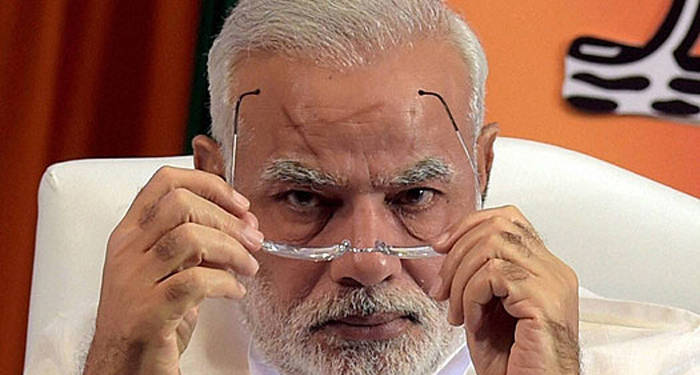In what comes as a shot in the arm for Modi government’s crackdown on black money, banking details of Indian Swiss Bank account holders will be available to the tax authorities from today. This development has taken place as automatic exchange of information (AEOI) regime kicks off between India and Switzerland. As per the Central Board of Direct Taxes (CBDT), this is a significant step in the government’s fight against black money as the era of “Swiss bank secrecy” will be over from today.
A Swiss Bank delegation, led by deputy head of the tax division in the state secretariat for international finance Nicolas Mario Luscher, recently called on Revenue Secretary A B Pandey, CBDT Chairman P C Mody and CBDT Member (Legislation) Akhilesh Ranjan, before the AEOI regime kicked in.
The first automatic exchange of financial account information (AEOI) under the provisions common reporting standard will take place this month. In its statement, CBDT said, “India will receive information of the calendar year 2018 in respect of all financial accounts held by Indian residents in Switzerland.” This would include information about the accounts which were closed in 2018. During the meeting, the two sides discussed bilateral exchange of information matters to quicken up execution of tax information sharing requests that were made by India in specific cases. According to the CBDT, “Enhancing collaboration in offshore tax compliance matters was also discussed.”
This comes as a massive boost to the strenuous efforts of the Modi government to tackle black money ever since it came to power. Around three months ago, Swiss authorities had issued issued notices to at least 11 Indian nationals regarding disclosure of their banking information to the Indian government.
The authorities had issued the notices on 21st of May, just a couple days after exit polls had predicted a massive win for PM Narendra Modi, though the gazette notifications of the Swiss government redacted full names for several of them while making public only their initials besides the nationality and the dates of birth.
The Modi government has taken an all out approach in curbing black money transactions and has taken on the mantle of attacking black money in several fronts. Among other efforts in the recent past, it also cracked down on shady operations of shell companies since it came to power. There have been positive results as the tax net of the country widened substantially in the last four years. The last and final blow against black money, however, was yet to come and the government is deploying this ‘Brahmanstra’ this year.
The most challenging part of any investigation in a black money case is establishing a trail of transactions. The government and Reserve Bank of India (RBI) had begun discussions about making a database of all electronic payment transactions. This would help in establishing a money trail to probe money laundering cases and operations of shell companies. While the government’s main focus would be on probing the corporate transactions, it would have data of individual transactions as well.
The government’s efforts against black money, which had begun in 2014, is finally showing results. The money deposited by Indians in tax havens has declined over the period from 2013 to 2017. Last year, an interim report of government which was based on the data from Bank of International Settlements (BIS), an international financial institution owned by central banks which fosters international monetary and financial cooperation and serves as a bank for central banks, had concluded that deposits and non-bank loans of Indians in Luxemburg, Jersey, and the Isle of Man lowered significantly. “This government is committed to bringing home the black money stashed abroad. We have taken a series of initiatives, including demonetization, which checked the generation of new black money,” a senior government official had said.
Earlier this year, the Income Tax department had claimed to have broken a nexus of Hawala operators based out of Delhi. These operators were running money laundering racket with an estimated worth of 20,000 crore rupees, which made it a major Hawala racket. The Delhi unit of Income Tax department conducted a series of raids in Old Delhi, a week before busting it. The I-T department found that three groups of operators were carrying out illegal financial activities.
The Modi government has undoubtedly launched an all out assault against black money and now the new information exchange regime with Switzerland is going to give enormous firepower to the Modi government in its efforts to tackle corruption.

























